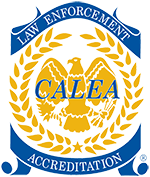Civilian Complaint
All complaints are recorded and investigated by the Office of Professional Responsibility (OPR).
Please fill in as much information as possible. By completing this form and submitting your complaint to our office, you will be entitled as a complainant to various rights under the consent decree including:
- Being kept informed of the progress of the investigation
- Receiving a final investigation report
- Given the opportunity to make submissions on the complaint
If you simply want the Providence Police Department to know about your concerns but do not wish to participate in the formal complaint process, you may file an anonymous complaint.
Note: Your information will be shared with a member(s) of the department you’re contacting as well as with the Office of Neighborhood Services. Therefore, this form should not be used to report any confidential information. Do not include your Social Security number.
The civilian complaint process was initiated by the mandate of a Federal Consent Decree in 1973. The consent decree governs all facets of the civilian complaint process, the basic tenets of which are as follows:
- The Providence Police Department has adopted a uniform civilian complaint form, which is available to any citizen.
- The complaint forms are available to any citizen at the front entrance (Information Counter) of the Providence Police Department, The Personnel Bureau, and the Providence Human Relations Commission.
- Complaints may be filed in person by any citizen or may be completed and mailed to the Office of Professional Responsibility, 325 Washington St, Providence, RI 02903
- Upon receipt of the complaint, the Office of Professional Responsibility shall note thereon the date and time of receipt and shall notify the person designated therein by certified mail. The complainant will be provided with the name of the investigator assigned to investigate the complaint.
- The Investigating Officer shall investigate the complaint and shall interview all persons named in the complaint and any other persons having information concerning the subject matter of the complaint.
- The investigation shall be completed within thirty days and a written report shall be forwarded to the director of the Human Resources Bureau.
- For cause shown, the investigating officer may request an additional thirty days within which to complete the investigation. If granted, the complainant shall be notified.
- Upon the filing of the complaint with the Director of the Human Resource Office, an officer above the rank of Sergeant shall be selected as the hearing officer on the complaint.
- A hearing on the complaint shall be mandatory and a notice of the time, date, and location of the hearing shall be given to all parties at least ten days prior to the hearing date. Notice shall be by certified mail.
- The investigating officer and any officers complained against shall attend. All parties may be represented by counsel or other authorized representatives.
- All parties shall have the right to present evidence and examine witnesses. A stenographic record shall be kept and shall be available, at the cost to any party to the proceeding.
- The hearing officer shall make a written finding of fact and based thereon shall find the police officer “guilty” or “not guilty”. If a complainant fails to appear at the hearing, the hearing officer shall enter a finding of “Not guilty”.
- A complainant failing to appear on a complaint upon which a “Not Guilty finding was made may for good cause shown, request the Director of the Personnel bureau to reschedule a new hearing. At any time within one (1) year from the date of receipt of the complaint, and the Director may in his discretion, grant such request and reschedule a hearing on the original complaint.
- The complainant may for good cause shown request from the Director of the Human Resource Bureau a new hearing, at anytime within one year from the date of receipt of the complaint.
- Copies of the hearing officers’ findings shall be forwarded to all parties and to the Chief of Police.
- The Chief of Police may approve or reject the decision and may submit charges against the officer in accordance with the Police Departments Disciplinary procedures.



